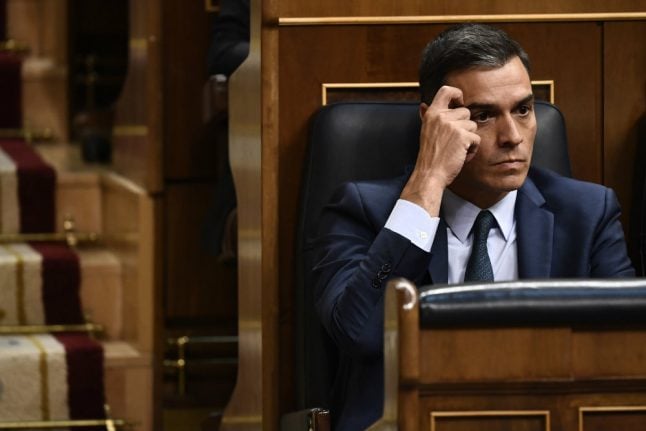His Socialists came first in a national poll in April with 123 parliamentary seats out of 350 and are the only ones capable of cobbling together a majority with the backing of other parties. But three months have passed since the election and he has yet to do it.
If a government is not formed by September 23, parliament will be automatically dissolved and fresh polls called in what would be Spain's fourth general election in as many years.
“I am not throwing in the towel. I am going to work so that we have a government as soon as possible,” Sanchez said in an interview with private television Telecinco after losing the confidence vote.
Sanchez repeats he is willing to govern alone in minority by negotiating support for legislation with other parties on a case by case basis, as he had done since coming to power in June 2018. No other party has agreed to this option.
He would first need to win a confidence vote in parliament, which would require him to convince either far-left Podemos or centre-right Ciudadanos to at least abstain from voting “in exchange for practically nothing” in return, said Lluis Orriols, political science professor at Madrid's Carlos III University. Orriols said this is unlikely to happen.
Sanchez also proposes to form a minority Socialist government with the backing of other smaller leftist parties once they have all agreed on a joint program, as in Portugal.
Portugal Prime Minister Antonio Costa has since 2015 headed a minority Socialist government backed by the Communist Party and the far-left Left Bloc.
Spain's Socialists and Podemos could agree on program since they have overlapping positions on many issues. But it is hard to see the far-left party accepting this option now after it came close to obtaining several cabinet posts in a coalition government with Sanchez.
The Socialists on Friday once again called on the conservative Popular Party (PP) and Ciudadanos to abstain in a confidence vote so that Sanchez can be voted in without the support of Catalan separatist parties. The rightist parties accuse him of cozying up to the separatists.
Deputy Prime Minister Carmen Calvo on Friday blamed the two parties for
“remaining with their arms crossed without assuming their responsibilities”.
But PP leader Pablo Casado refuses to give Sanchez a “blank cheque” and Ciudadanos leader Albert Rivera has refused to even meet with the Socialist leader.
After a 2016 general election, Sanchez and Rivera signed an agreement to form a government but then failed to gain the necessary support on a parliamentary confidence vote.
This time around the two parties together would have an absolute majority in parliament.
The Socialist leader could try again to form a coalition government with Podemos. But the two sides have accused each other of blocking negotiations before Thursday's failed confidence vote and mutual distrust is high.
“This has been rejected and it remains rejected,” Calvo said Friday, indicating Sanchez is in no rush to resume talks with his rival Podemos leader Pablo Iglesias.
Metroscopia analyst Francisco Camas told AFP this option would be difficult because the two parties “do not trust each other”.
If no candidate is sworn in by the September 23 deadline, new elections will be called for November 10.
This is the most likely outcome in the current political stalemate, with the risk that turnout will drop as frustrated voters stay away from the ballot box, Camas said.
As it is, Spaniards already see “politicians, parties and politics” as their biggest concern after unemployment, according to the latest poll by the state Centre for Sociological Studies.
READ ALSO: Pedro Sanchez loses confidence vote: Spain heading for ANOTHER election




 Please whitelist us to continue reading.
Please whitelist us to continue reading.
Member comments